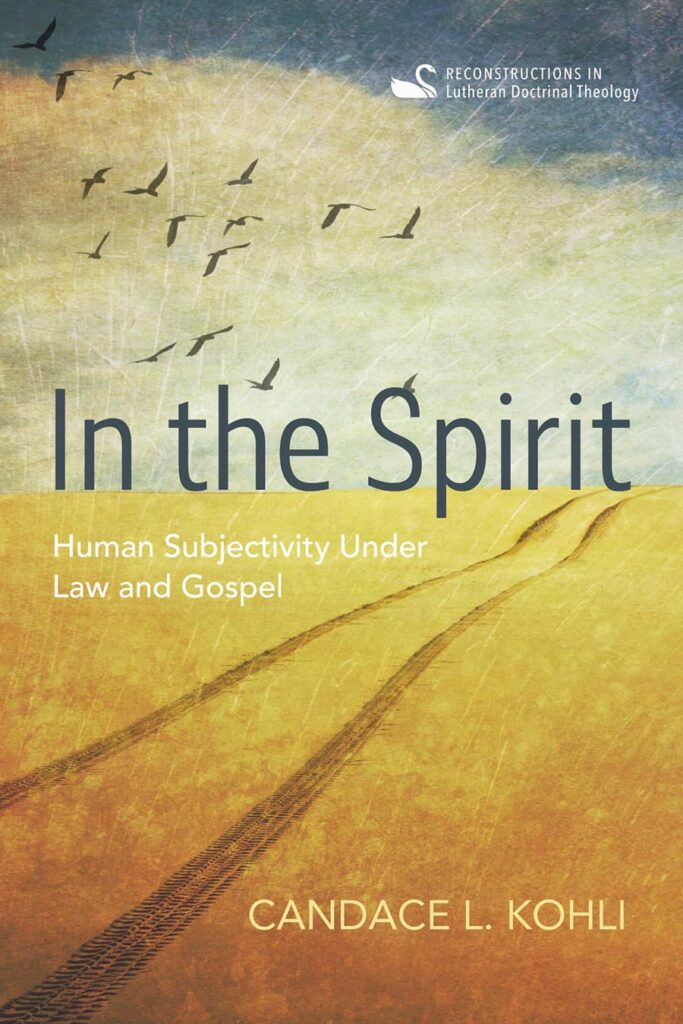Assistant Professor of Lutheran Systematic Theology and Global Lutheranism Dr. Candace Kohli Publishes New Book on Human Subjectivity in Lutheran Theology

How do Christians engage in ethical action after justification? Dr. Candace Kohli, Assistant Professor of Lutheran Systematic Theology and Global Lutheranism at the Lutheran School of Theology at Chicago, tackles this longstanding theological question in her new book, In the Spirit: Human Subjectivity Under Law and Gospel, published by Wipf and Stock in November 2024.
Kohli’s study revisits Martin Luther’s theology, particularly his late-career disputes over law and gospel, to explore how Lutheran thought can reconcile the believer’s passivity in justification with their active moral responsibility in daily life. This work, which is deeply rooted in historical theology and philosophy, offers a fresh perspective on the interplay between faith, agency, and ethical action.
For Kohli, the problem begins with the way Lutheran theology has traditionally framed justification. “If humans are entirely passive in justification, then what you have is a coercive model,” she explains. “If consent or reciprocation isn’t part of the equation, then there are…troubling ethical implications [to our contemporary understanding of Luther’s works].” Kohli argues that traditional understandings of Luther’s theological framework leaves Lutheran ethics without a strong philosophical foundation for moral action, leading to a contradiction in how faith and works are understood.
Many Lutheran theologians have sought to resolve this issue by citing Luther’s 1520 treatise, The Freedom of a Christian, in which he claims that Christ’s love “springs spontaneously” from the believer’s soul. However, Kohli finds this explanation lacking. “There has to be interplay between the soul and the body, between the inner processes in the mind and what you actually do with your body,” she says. After all, if humans are completely passive in justification, then logically, they should be passive in ethical action as well. Such a dichotomy could lead to misunderstandings that creates a kind of theological dead-zone where believers are moved by an outside force without agency or participation—a zombie apocalypse, if you will, of Christian theology.
In service of her larger argument, Kohli’s research highlights an overlooked shift in Luther’s later work. She notes that dominant interpretations of his theology have been shaped disproportionately by his early, polemical writings—particularly those surrounding his excommunication. “More than 75% of the Luther texts included in modern anthologies come from this period,” she says. “Meanwhile, the final 20 years of his life, [when his views became more nuanced and in many ways more aligned with medieval Catholic thought], get only scant attention.”
This oversight, Kohli argues, has led to an incomplete understanding of Lutheran theology, particularly regarding the role of the Holy Spirit in sanctification. “Luther actually used Aristotelian metaphysics and he did engage with Catholic thought,” she explains. By reexamining Luther’s later works, Kohli provides theological resources that bridge justification and moral action in sanctification, offering a more coherent understanding of Christian subjectivity.
Though her book is primarily intended for scholars of Luther and historical theology, Kohli hopes it will challenge broader assumptions within Lutheran identity. “We often move too quickly from talking about the human to talking about Imago Dei to talking about Christ,” she says. Kohli’s work argues for establishing a framework that affirms human dignity and agency rather than dissolving it into Christology. Otherwise, as she argues, we risk losing the particularity of human beings in both theology and ethics.
With In the Spirit, Kohli contributes to ongoing theological discussions about faith, agency, and sanctification, prompting scholars to rethink how Luther’s work informs contemporary Christian life. The book is available now through Wipf and Stock Publishers.